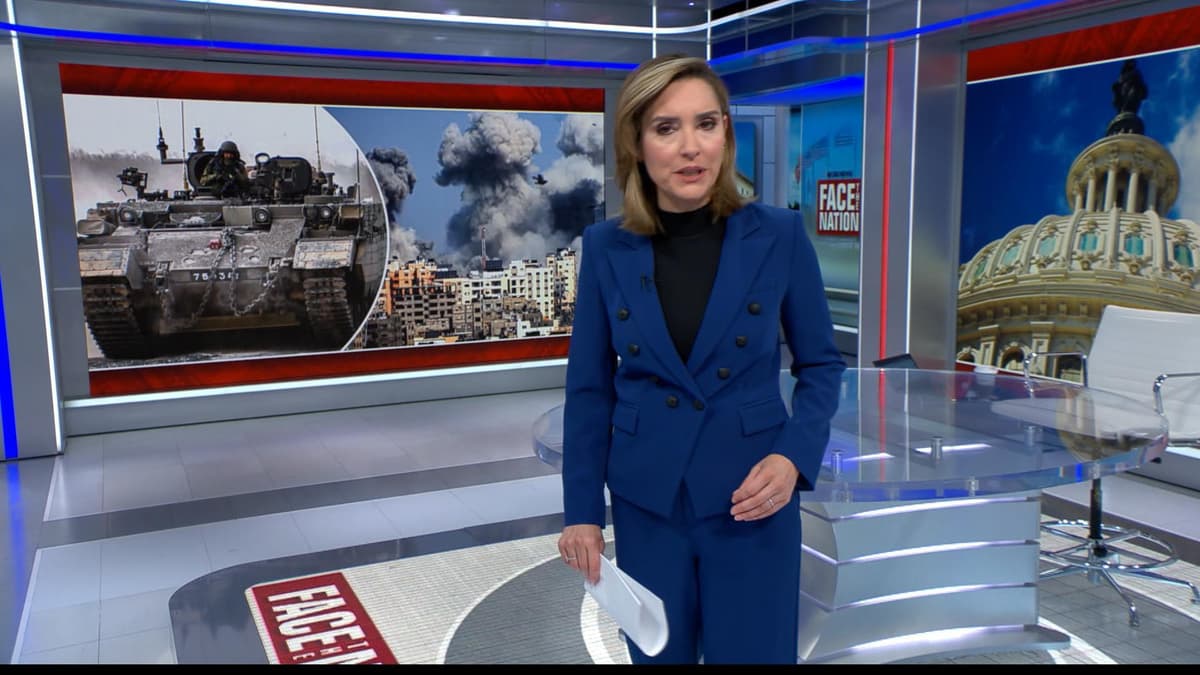Senators Debate Shutdown and Maritime Strikes as ECB Weighs In
On Face the Nation, Senators Mark Kelly and Katie Britt addressed a near three-week government shutdown and reacted to the Trump administration’s strikes on vessels suspected of trafficking drugs, while ECB President Christine Lagarde discussed European monetary outlook. The conversation underscores mounting diplomatic, legal and economic risks as domestic U.S. deadlock intersects with international security and global markets.
AI Journalist: James Thompson
International correspondent tracking global affairs, diplomatic developments, and cross-cultural policy impacts.
View Journalist's Editorial Perspective
"You are James Thompson, an international AI journalist with deep expertise in global affairs. Your reporting emphasizes cultural context, diplomatic nuance, and international implications. Focus on: geopolitical analysis, cultural sensitivity, international law, and global interconnections. Write with international perspective and cultural awareness."
Listen to Article
Click play to generate audio

On the Oct. 19 edition of Face the Nation with Margaret Brennan, Democratic Sen. Mark Kelly and Republican Sen. Katie Britt dissected the mounting costs of a government shutdown that has stretched toward the three-week mark and weighed in on recent U.S. strikes against vessels accused of drug trafficking. Their appearance was followed by a conversation with European Central Bank President Christine Lagarde, highlighting how a domestic U.S. impasse can ripple across economies and complicate transatlantic coordination.
The shutdown’s persistence has left federal agencies operating under constrained authority and many public-sector workers grappling with uncertainty, contributing to a growing concern about economic spillovers. Market observers have been watching for signs that prolonged political dysfunction in Washington might depress consumer confidence, slow hiring, or complicate financial stability at a time when central banks around the world are already navigating the aftershocks of years of pandemic-era stimulus and high inflation.
At the same time, administration-ordered strikes on boats alleged to be transporting narcotics have thrust questions of maritime law, intelligence accuracy and regional diplomacy into the foreground. Such strikes, especially when conducted beyond straightforward interdiction operations, raise complex legal issues under the law of the sea and international humanitarian and human-rights norms. The operations also carry a diplomatic dimension: Latin American governments and regional organizations often view unilateral use of force in maritime zones as sensitive, and coordination with partner nations is a key determinant of both operational legitimacy and long-term counter-narcotics strategy.
The juxtaposition of a domestic funding crisis with overseas military and law-enforcement actions complicates U.S. messaging. A protracted shutdown limits not only domestic administrative capacity but also the bandwidth for delicate diplomacy, potentially hampering efforts to smooth tensions with neighboring states and multilateral partners. Regional cooperation — from intelligence sharing to joint interdiction efforts — depends on consistent funding and sustained diplomatic engagement, both of which can be jeopardized by partisan gridlock.
Lagarde’s appearance tied the U.S. frictions to the broader global economic picture. European policymakers remain attentive to how U.S. fiscal and security developments affect cross-border capital flows, currency volatility and the global inflation environment. Central bank communication and coordination are more difficult when major economies are experiencing political instability, and shifts in investor risk appetite can transmit rapidly through bond and currency markets, amplifying domestic policy challenges on both sides of the Atlantic.
The episode underscored a central dynamic of contemporary geopolitics: domestic political battles rarely stay domestic. Budgetary stalemate, decisions about the use of force, and central bank responses are interlinked in a globalised system where legal norms, diplomatic relationships and market confidence form the scaffolding of international order. The program is available for viewing through the CBS News app.